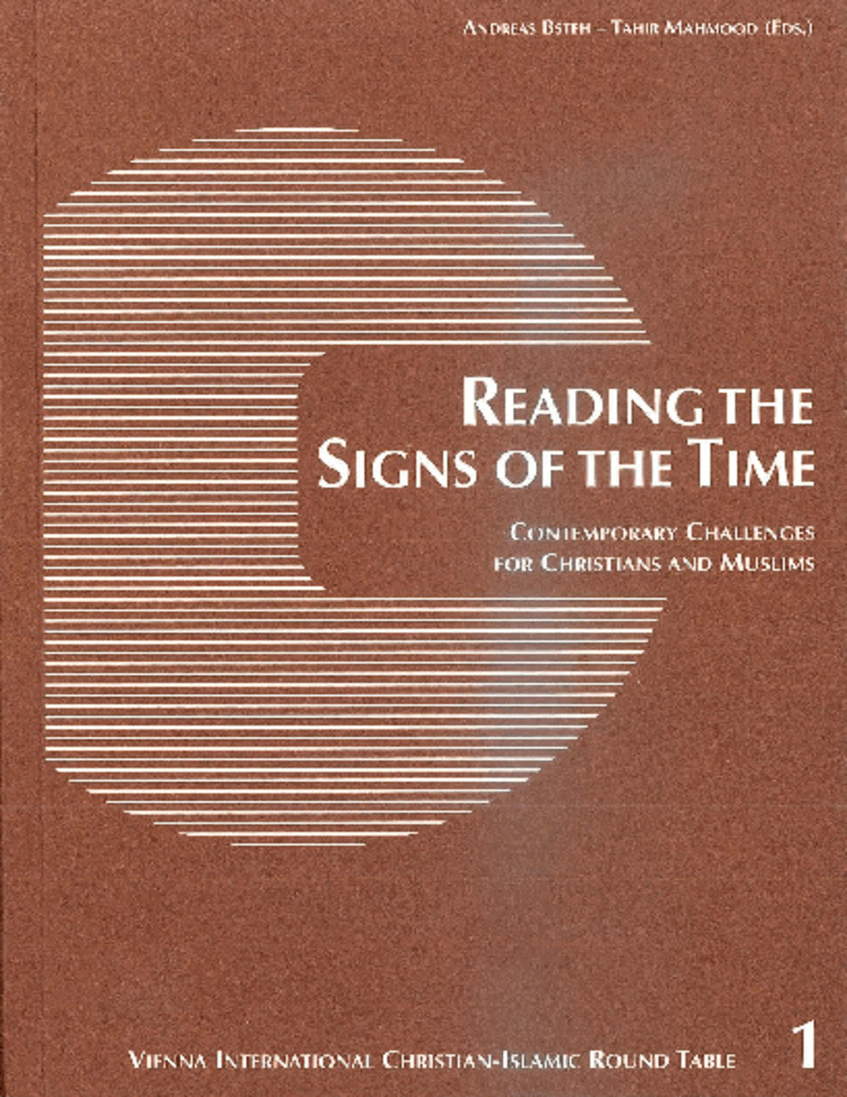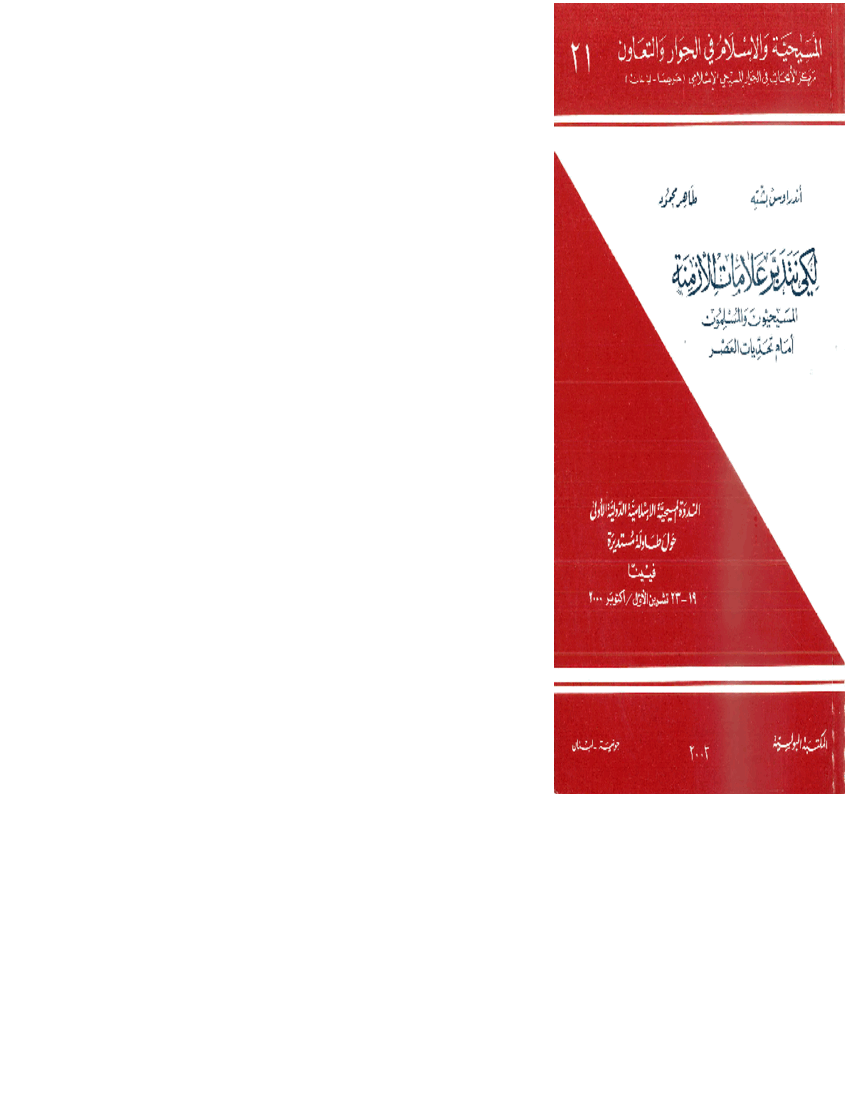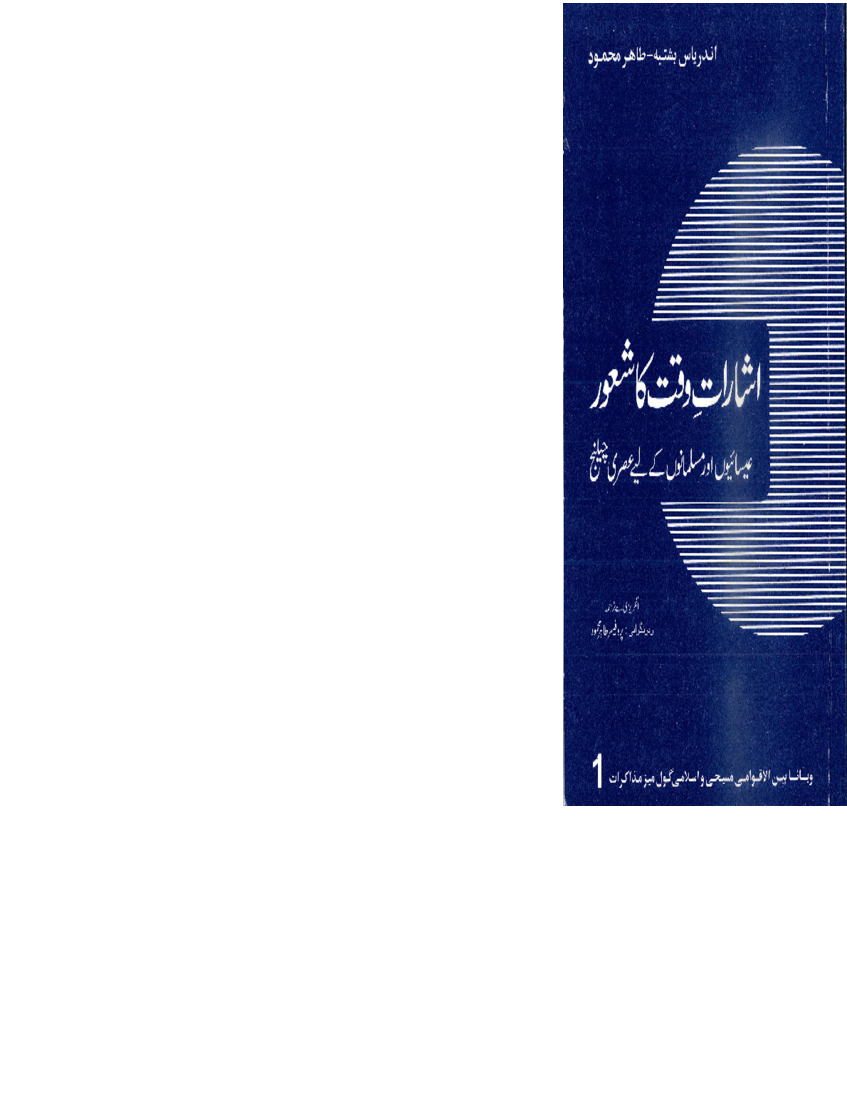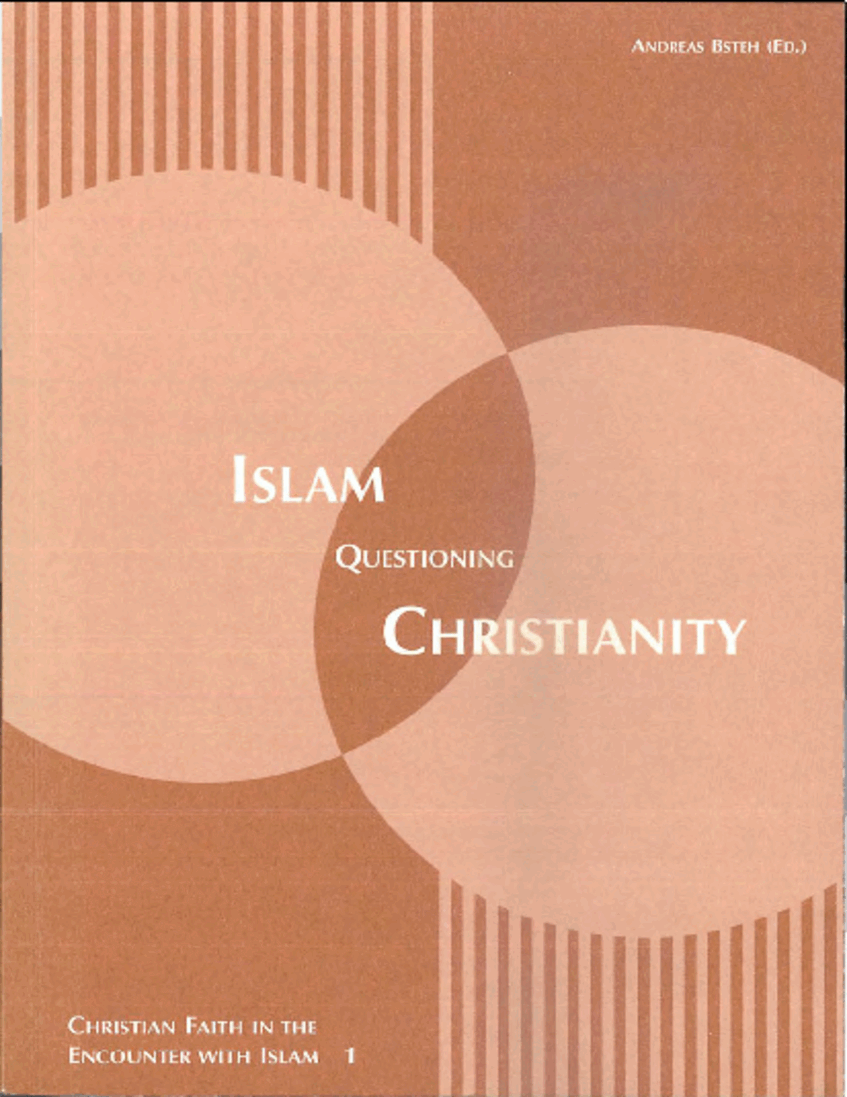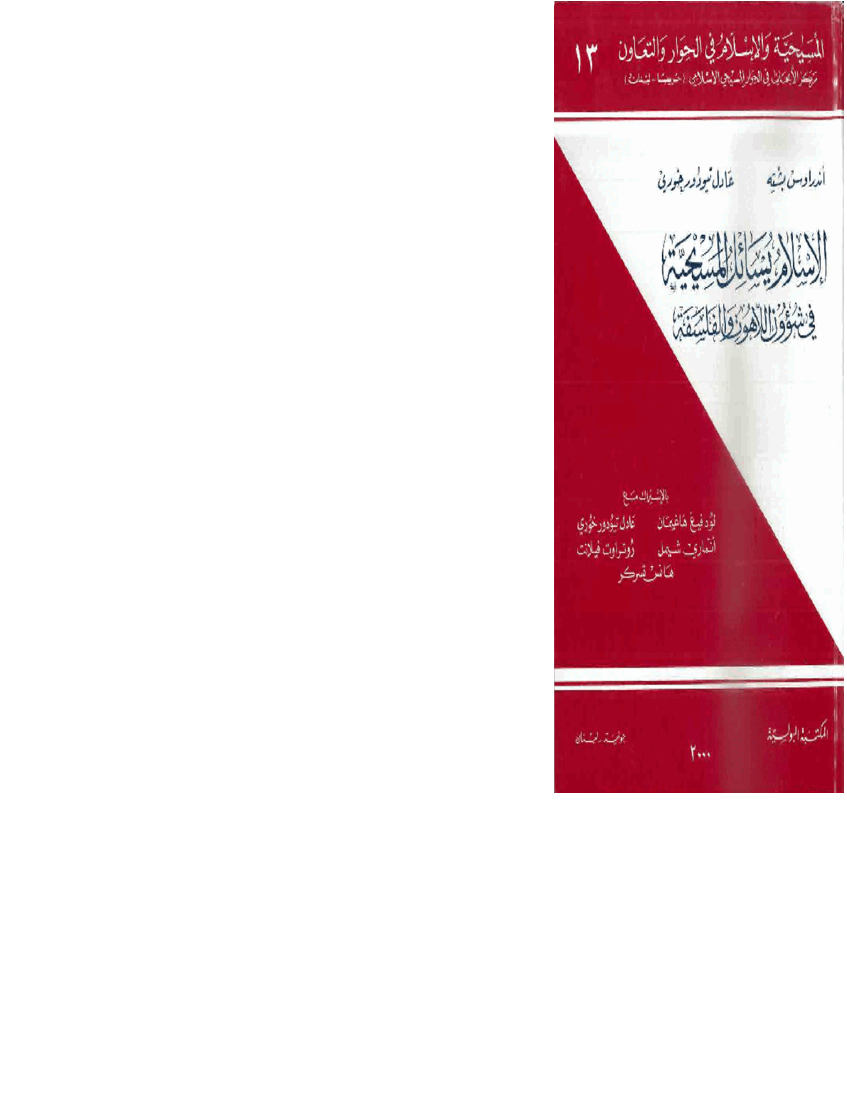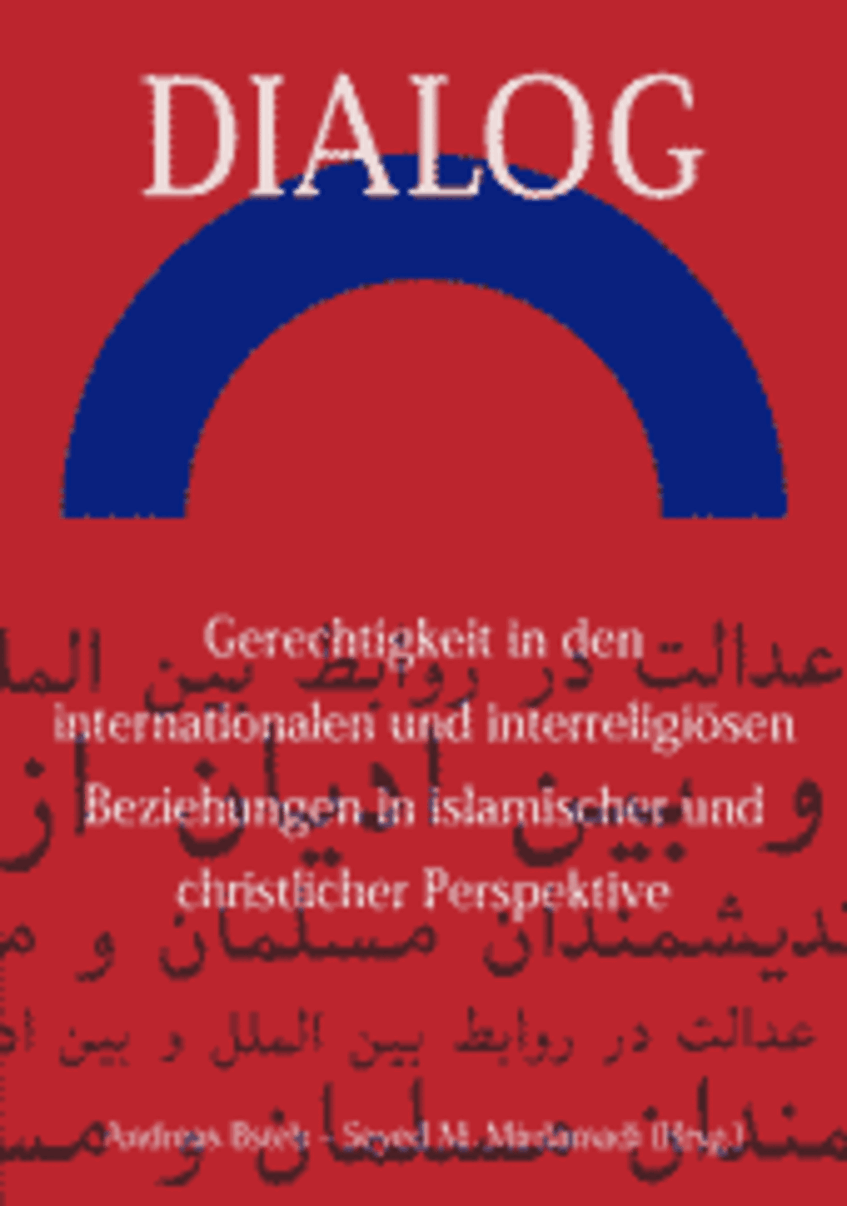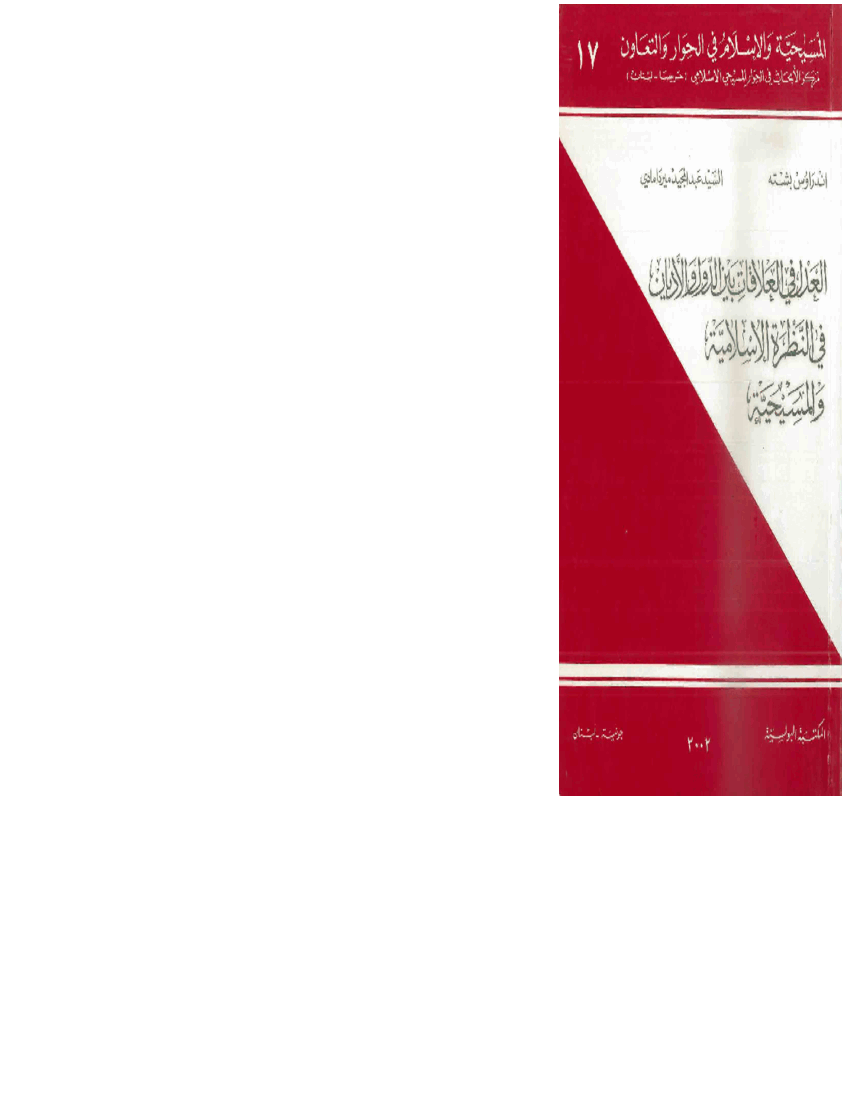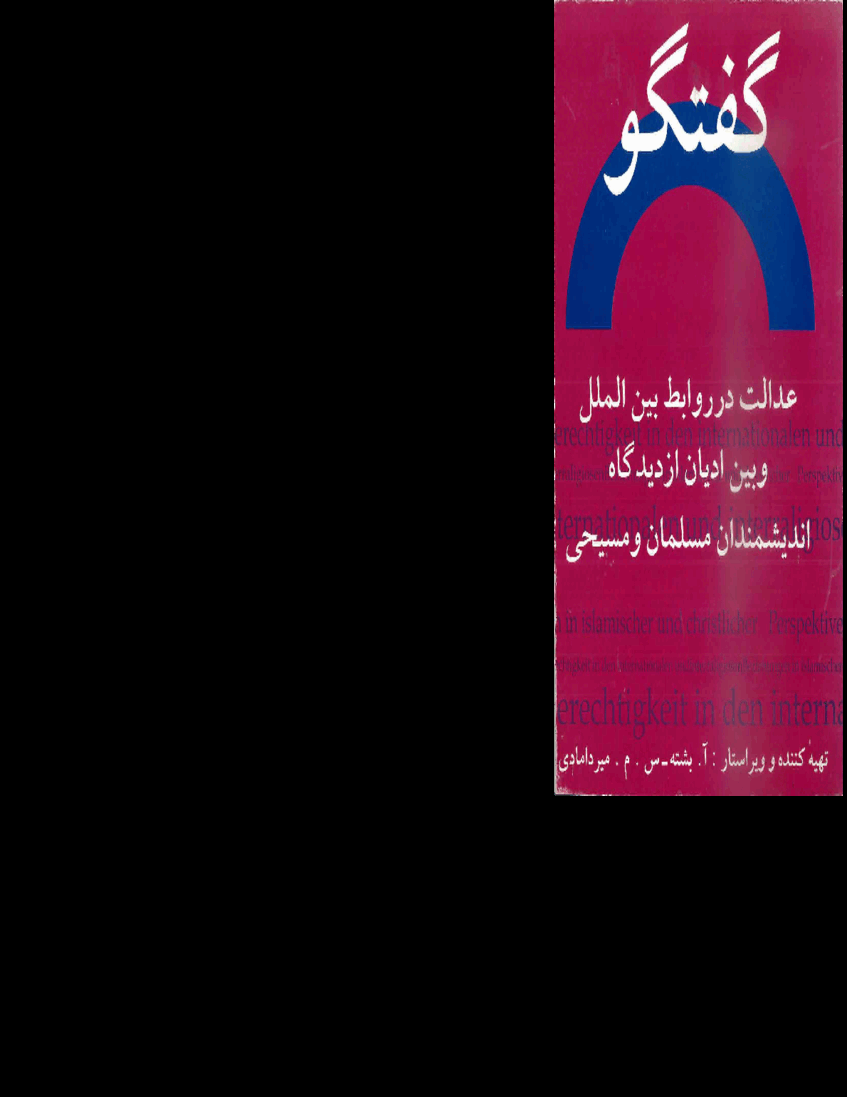Welcome to the Publications on Interreligious Dialogue of the Religious-Theological Institute of St. Gabriel
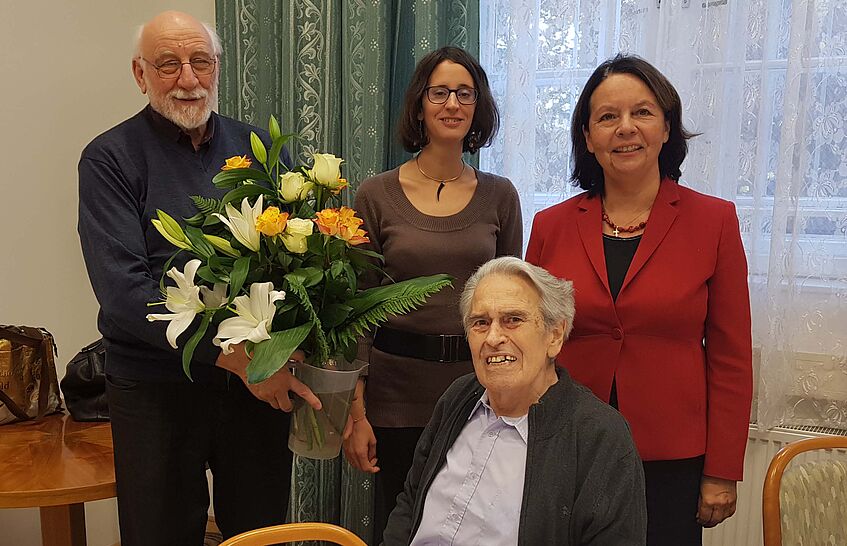
Professor P. Andreas Bsteh SVD on his 85th birthday
The Christian Muslim Dialogue
An Intellectual Adventure
On this homepage we present to you (with the friendly permission of the authors) the digital version a series of books on interreligious dialogue that constitute a pioneering intellectual effort. They reflect in a rather broad way on the interrelationship of the major world religions, particularly Christianity and Islam. In a globalized highly interdependent world it becomes more and more important to reflect on their commonalities and differences in an academic way. The publications presented here were the outcome of a number of conferences conducted from the 1970’s to 2008 in various settings and with various themes of mutual interest, whereby the ethical dimension in the course of time has become more and more important. Most of these books were originally published in German. They have then been translated into English as well as into Arabic, Urdu and some of them Farsi which make them accessible for a wider public worldwide in many country.
Our thanks go first of all to Professor Andreas Bsteh SVD the initiator and organizer of these interreligious dialogues who edited these volumes with untiring work and incredible sensitivity (some of them together with Professor Tahir Mahmood, New Delhi). Our particular gratitude is also to be extended to Professor Adel Th. Khoury, emeritus of Religious Studies in Münster (Germany), who was prominent in giving intellectual guidance to this Vienna dialogue process and accompanied and organized the Arab translations, as well to all those academics from many countries who contributed their articles to the different volumes of whom many have been engaged in interreligious dialogue in their countries and worldwide and thus worked for peaceful relations between different religions. Since we also learned in the course of these encounters and publications how important good translations are our special thanks also go to the interpreters, who through their work contributed greatly to make the intellectual efforts accessible to a many readers in their respective mother tongues. May these works be an inspiration for many others to continue on this path of mutual understanding between the different religions with their great intellectual and spiritual treasures to overcome actual and potential divisions.
January 6, 2019
Professor Ingeborg Gabriel
Introduction
-
History of the Vienna Dialogue Initiative (Prof. Ingeborg Gabriel)
The Vienna Dialogue Initiative: History and Milestones of a Unique Dialogue Process.
by Ingeborg G. Gabriel1
Reflection on interreligious dialogue requires prior practice. It is personal encounters with believers of other faith traditions which constitute an appropriate basis for subsequent reflections. I therefore want to include here a short history of what is in the following to be called the Vienna Dialogue Initiative (VDI). It was a particularly well planned dialogue process ginning which because of its longue durée can offer valuable insights for future endeavours in interreligious dialogue.
With Vatican II the Roman Catholic Church repositioned itself theologically in the Declaration on Non-Christian Religions Nostra aetate (1965). Out of this change grew a number of initiatives in interreligious dialogue. One of them began already in the 1970s at the College of Theological Studies of the congregation Societas Verbi Divini (SVD) in St. Gabriel in the town of Mödling near Vienna. Its spiritus rector and driving force was Fr. Andreas Bsteh, who held a professorship of fundamental theology there.
The first conference was on Christianity in a religiously plural world (1974).2 It brought together leading scholars. It was followed by a series of symposia focusing on the relationship between Christianity and Islam, Christianity and Buddhism and then Christianity and Hinduism.3 In the 1990s a series of academic encounters was organized to deepen the understanding of the world religions.4 This was considered a necessary intellectual preparation for face to face dialogue with believers from other religions. The intention thus was to understand as well as possible the theology, anthropology and ethics of the other faith traditions and then enter into dialogue with them. In view of the vastness of these traditions, each of the world religions constituting a universe of its own with texts from often several millennia, this was a task that cannot be accomplished but in a fragmentary way.
Still it was a first and very valuable attempt to enhance mutual comprehension. The theological method was to formulate those questions that from the side of the other faith tradition might be posed to Christian theology. The concept was thus dialogical from the start, the aim being to formulate the basic contents of Christianity with regard to other religious traditions. The symposia were thus a sort of fictitious academic dialogue engaging the best theologians assisted by scholars from other disciplines, e. g. the internationally renowned German Orientalist Annemarie Schimmel.
To find common ground between religious traditions that had developed either without having contact with each other and which often had a history marked by polemics was as fascinating as it was demanding.5 It required to correct false understandings and see the religious beliefs and practices of the other with the intention to find that what unites before seeing what divides. This method proved to be highly enriching since it led not only to a better understanding of the other, but also of one’s own faith. It showed that all religious traditions incorporate universal human meaning in their creed, as well as in their cult and ethics. It also showed that the different interpretations existing in all religious traditions must be reinterpreted in the new context of a globalized world which is multireligious. This is possible because all religious (as other) traditions are pluriform and subject to constant changes throughout their history. To take one example: what “sacrifice” means in Hinduism requires a basic understanding of the more general notion of sacrifice. The religious experience gained from one’s own faith tradition can help here well as philosophical reflections on the phenomenon. This process of mutual theological understanding remains, of course, always incomplete and is never immune to misunderstandings. Sometimes already the translation of a term poses a linguistic problem. Despite these pitfalls, however, this is the only way to learn about other religions and it constitutes a very fruitful intellectual process. The symposia in St. Gabriel in the 1980s and 1990s were thereby opening the hallway to the following interreligious dialogues among believers of different faith traditions.
From the 1990s onwards the Vienna Dialogue Initiative (VDI) centred on Christianity and Islam in their mutual relationship. The reason for this was the also political need to find common ground between the two world religions, which had often been in conflict with each other. It was the merit of renowned scholars like Fr. George Anawati an Egyptian Dominican, and internationally renowned specialist on Christian and Muslim mystics and Fr. Adel Th. Khoury, a Lebanese Maronite priest and leading international scholar on Islam who joined the dialogue that it became indeed a milestone in interreligious relations. The VDI started with two international conferences held in Vienna in 1993 and 1997 in which outstanding academics and politicians from the Muslim world participated. 6 Those invited were to be firmly rooted in their faith traditions as well as ready to engage in the then very new field of interreligious dialogue. Today the list of participants of these conferences reads like a Who’s Who of pioneers in interreligious dialogue. This shows farsightedness at a time when Christian-Muslim dialogue was still at a beginning.
A next step in the VDI were a series of smaller meetings on ethical questions convened under the title Vienna Christian-Muslim Round Table (VICIRoTa).7 This round table took place every two years from 2000 to 2008. For the scholars of Muslim and Christian faith half were men and half women, which by itself was quite sensational, and had various academic backgrounds (law, sociology, economics, political science, as well as theology).8 The guiding question of all these dialogues was what Christianity and Islam could contribute to global peace in the 21st century. Their fruitfulness depended also on the fact that the group of participants remained more or less the same throughout the whole dialogue process. This made it much easier to talk to each other and – more important – to better understand the way the others think and argue. The atmosphere of friendship that developed thanks to the untiring care of F. Bsteh proved to be stimulating also at an intellectual level.9 This VICIROTA dialogue process finished officially in 26-28 October 2008 with a Manifesto that was presented at an official ceremony in Vienna. It was attended by the then Austrian president, Heinz Fischer, several Austrian ministers, the Archbishop of Vienna, Cardinal Schönborn, as well as the former Iranian President M. Khatami who gave the keynote speech. Its aim was to present the findings to a larger Austrian public.10
From 1996 to 2008 the Institute at St. Gabriel moreover organized four Austrian-Iranian dialogue conferences bringing together Austrian and Iranian scholars from the disciplines of law, theology and the human sciences (political science, economics and sociology). The Iranians as Shiites wished to conduct these interreligious dialogue meetings to take into account the difference of their tradition from Sunnite Islam. The conferences were held twice in Teheran (1996, 2003) and twice in Vienna (1999, 2008). They were initiated in 1994 at a meeting between the foreign ministers of Austria and Iran, Alois Mock and Ali Akbar Velajati. They were the first official dialogue with the Shiite Islam. Thematically they covered similar ground, treating justice, values, and peace and last but not least hermeutics in the Christian and Shiite-Muslim theological, ethical and legal traditions.11 Particularly the first dialogue in Teheran in 1996 was met with great interest from the side of the media and was broadcasted in full length on TV. The second meeting in Teheran in 2003 took place right before the second Iraq war. It was less spectacular and showed that in the meantime interreligious dialogue had become more common, also due to the personal interest of then Iranian president Khatami, who had initiated the UN Dialogue of Civilizations. At his state visit to Austria in 2002 president Khatami had asked that an interreligious dialogue be held in public with him, the president of the Republic, religious leads and university professors at the Hofburg.
In 2005 we decided to establish a summer school to pass on the findings of the dialogues to students. In 2006 the Vienna Christian-Muslim Round Table (VICIRoTa)
was thus attended also by twenty-five Muslim and Christian students and was followed by a special course week. This experience was so good that it was continued. The following summer university (VICISU) took place in July 2008 with an extended three-week programme and a larger number of participants in the Benedictine monastery of Altenburg in Lower Austria.[12] The campus atmosphere there was very conducive to in depth encounters among the students from many different countries. They were chosen by their respective universities and with the help of our dialogue partners. The event was widely covered by the media. This showed that interreligious dialogue in the meantime had become more common and well accepted in the Austrian church and society and that many people feel that there is a need to conduct such dialogues, particularly between Christianity and Islam.13 In 2018 the VICISU took place for the seventh time.
During the past decades interreligious dialogue initiatives have boomed because they fulfil a real need for mutual encounter and to learn about the other. The variety of efforts helps to improve the understanding of the dynamics of such dialogue processes. A look back to the first efforts at this point can be of help to assess what has happened in the meantime and also sharpen the criteria for the stimulating endeavour to bring the major faith traditions and religions in a fruitful intellectual exchange with each other.
1 This is part of an article published in the Journal of Ecumenical Studies (JES), winter 2010: Ingeborg Gabriel, „Like Rosewater. Reflections on Interreligious Dialogue”, in: JES, 112/4, pp. 317-322. URL: www.tandfonline.com/doi/abs/10.1080/00344087.2017.1325096 [11.12.2018].
2 Published in Andreas Bsteh (ed.), Universales Christentum angesichts einer pluralen Welt [Universal Christianity Facing a Plural World], Mödling: Verlag St. Gabriel, 1976.
3 Andreas Bsteh (ed.), Der Gott des Christentums und des Islams [God in Christianity and Islam], Mödling: Verlag St. Gabriel, 1978, Arabic edition: Jounieh 2003; Andreas Bsteh (ed.), Erlösung in Christentum und Buddhismus [Salvation in Christianity and Buddhism], Mödling: Verlag St. Gabriel: 1982; Andreas Bsteh (ed.), Sein als Offenbarung in Christentum und Hinduismus [Being as Revelation in Christianity and Hinduism], Mödling: Verlag St. Gabriel, 1984;
4 Andreas Bsteh (ed.), Dialog aus der Mitte christlicher Theologie [Dialogue from the Core of Christian theology], Mödling: Verlag St. Gabriel, 1987; Andreas Bsteh (ed.), Glaube, der Begegnung sucht. Ein theologisches Programm [Faith in the Search of Encounter. A Theological Programme], Mödling: Verlag St. Gabriel, 1992; Andreas Bsteh (ed.), Hören auf sein Wort. Der Mensch als Hörer des Wortes Gottes in christlicher und islamischer Überlieferung [Listening to His Word. Man as a Listener to the Word of God in the Christian and Islamic Tradition], Mödling: Verlag St. Gabriel, 1992, Arabic edition: Jounieh 1999. Andreas Bsteh (ed.), Friede für die Menschheit. Grundlagen, Probleme und Zukunftsperspektiven aus islamischer und christlicher Sicht, Mödling: Verlag St. Gabriel, 1994; Andreas Bsteh (ed.), Peace for Humanity. Principels, Problems and Perspectives of the Future as Seen by Muslims and Christians, Vikas Publishing House: New Delhi, 1998, Arabic edition: Jounieh 1998, Urdu edition: Lahore 1997; Andreas Bsteh (ed.), Eine Welt für alle. Grundlagen eines gesellschaftspolitischen und kulturellen Pluralismus in christlicher und islamischer Perspektive, Mödling: Verlag St. Gabriel, 1999; Andreas Bsteh (ed.), One World for All. Foundations of a Socio-Political and Cultural Pluralism from Christian and Muslim Perspectives, Vikas Publishing House: New Delhi, 1999, Arabic edition: Jounieh 2000, Urdu edition: Lahore 2003.
5 Judaism was not included in the VDI because for Christian theology it holds a completely different position than other religions being its very foundation.
6 Andreas Bsteh (ed.), Der Islam als Anfrage an christliche Theologie und Philosophie, Mödling: Verlag St. Gabriel, 1994; Andreas Bsteh (ed.), Islam Questioning Christianity, Mödling: Verlag St. Gabriel, 2007, Arabic edition: Jounieh 2000; Andreas Bsteh (ed.), Christlicher Glaube in der Begegnung mit dem Islam, Mödling: Verlag St. Gabriel, 1996; Andreas Bsteh (ed.), Christian Faith in Dialogue with Islam, Mödling: Verlag St. Gabriel, 2007, Arabic edition: Jounieh 2002. Free online access: se-ktf.univie.ac.at/forschung/christlich-muslimischer-dialog/studies-in-theology-of-religions/ [17.12.2018].
7 Andreas Bsteh / Tahir Mahmood (ed.), Um unsere Zeit zu bedenken. Christen und Muslime vor den Herausforderungen der Gegenwart, Mödling: Verlag St. Gabriel, 2003; Andreas Bsteh / Tahir Mahmood (eds.), Reading the Signs of the Time: Contemporary Challenges for Christians and Muslims, Mödling: Verlag St. Gabriel, 2003, Arabic edition: Jounieh 2003, Urdu edition: New Dehli 2004; Andreas Bsteh / Tahir Mahmood (eds.), Intoleranz und Gewalt. Erscheinungsformen – Gründe – Zugänge, Mödling: Verlag St. Gabriel, 2004; Andreas Bsteh / Tahir Mahmood (eds.), Intolerance and Violence: Manifestations – Reasons – Approaches, Mödling: Verlag St. Gabriel, 2004, Arabic edition: Jounieh 2004, Urdu edition: New Delhi 2004; Andreas Bsteh / Tahir Mahmood (eds.), Armut und Ungerechtigkeit. Krisenzeichen der gegenwärtigen
Gesellschaftsordnung weltweit, Mödling: Verlag St. Gabriel, 2006; Andreas Bsteh / Tahir Mahmood (eds.), Poverty and Injustice: Alarming Signs of the Present Crisis in Human Society Worldwide, Mödling: Verlag St. Gabriel, 2006, Arabic edition: Jounieh 2008, Urdu edition: New Delhi 2008; Andreas Bsteh / Tahir Mahmood (eds.), Erziehung zu Gleichberechtigung. Eine Antwort auf Ungerechtigkeit und Intoleranz, Mödling: Verlag St. Gabriel, 2007; Andreas Bsteh / Tahir Mahmood (eds.), Education for Equality: An Answer to Injustice and Intolerance, Mödling: Verlag St. Gabriel, 2007, Arabic edition: Jounieh 2009; Urdu edition: New Delhi 2008. Free online access: se-ktf.univie.ac.at/forschung/christlich-muslimischer-dialog/vicirota/ [17.12.2018].
8 The participants came from Iran, Morocco, Saudi Arabia, India, Pakistan, Kyrgyzstan, Austria, Germany, Switzerland and Lebanon.
9 The conference proceedings of these conferences can be found on this homepage in English, Arabic and Urdu.
10 Vienna International Christian-Islamic Round Table Manifesto, Adopted on the occasion of the 5th VICIRoTa Plenary Meeting at St. Gabriel on 24 October 2008, St. Gabriel, 2008.
11 The conference proceedings of four conferences have been published in German, Arabic, Farsi. Cf.
Andreas Bsteh / Seyed A. Mirdamadi (eds.), Gerechtigkeit in den internationalen und interreligiösen Beziehungen in islamischer und christlicher Perspektive [Justice in international and interreligious relations in Islamic and Christian perspective], Mödling: Verlag St. Gabriel, 1997, Farsi edition: Tehran 1998, Arabic edition: Jounieh 2002; Andreas Bsteh / Seyed A. Mirdamadi (eds.), Werte – Rechte – Pflichten. Grundfragen einer gerechten Ordnung des Zusammenlebens in christlicher und islamischer Sicht [Values – Rights – Duties. Basic issues of a just order of coexistence in Christian and Islamic perspective], Mödling: Verlag St. Gabriel, 2001, Farsi edition: Tehran 2001, Arabic edition: Jounieh 2003; Andreas Bsteh / Seyed A. Akrami / Seyed A. Mirdamadi (eds.), Friede, Gerechtigkeit und ihre Bedrohungen in der heutigen Welt [Peace, justice, and their being threatened in the contemporary world], Mödling: Verlag St. Gabriel, 2005, Farsi edition: Tehran 2005, Arabic edition: Jounieh 2006; Andreas Bsteh / Seyed A. Mirdamadi (eds.), Hermeneutik. Thema der 4. Iranisch-Österreichischen Konferenz [Hermeneutics: Topic of the 4th Iranian-Austrian Conference], Mödling: Verlag St. Gabriel, 2010, Farsi Edition: Tehran 2010, Arabic edition: Jounieh 2011. Free online access: se-ktf.univie.ac.at/forschung/christlich-muslimischer-dialog/iranian-austrian-conferences/ [17.12.2018].
12 www.univie.ac.at/vicisu/history/the-1st-vienna-international-christian-islamic-summer-university-vicisu-2008/ [17.12.2018].
13 They were generously financially supported by the Austrian Ministry of Education and Science.

